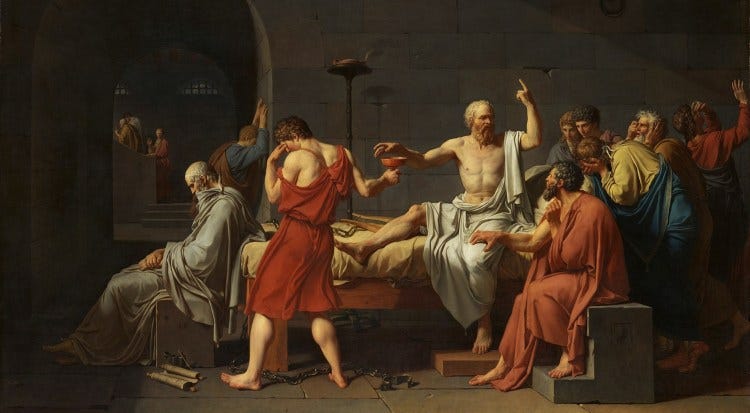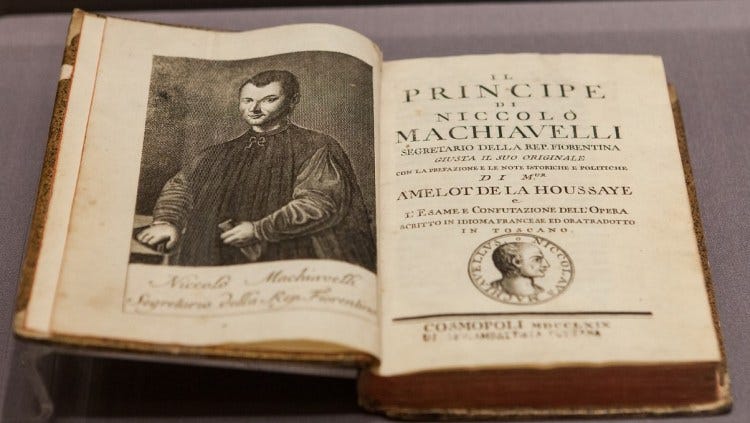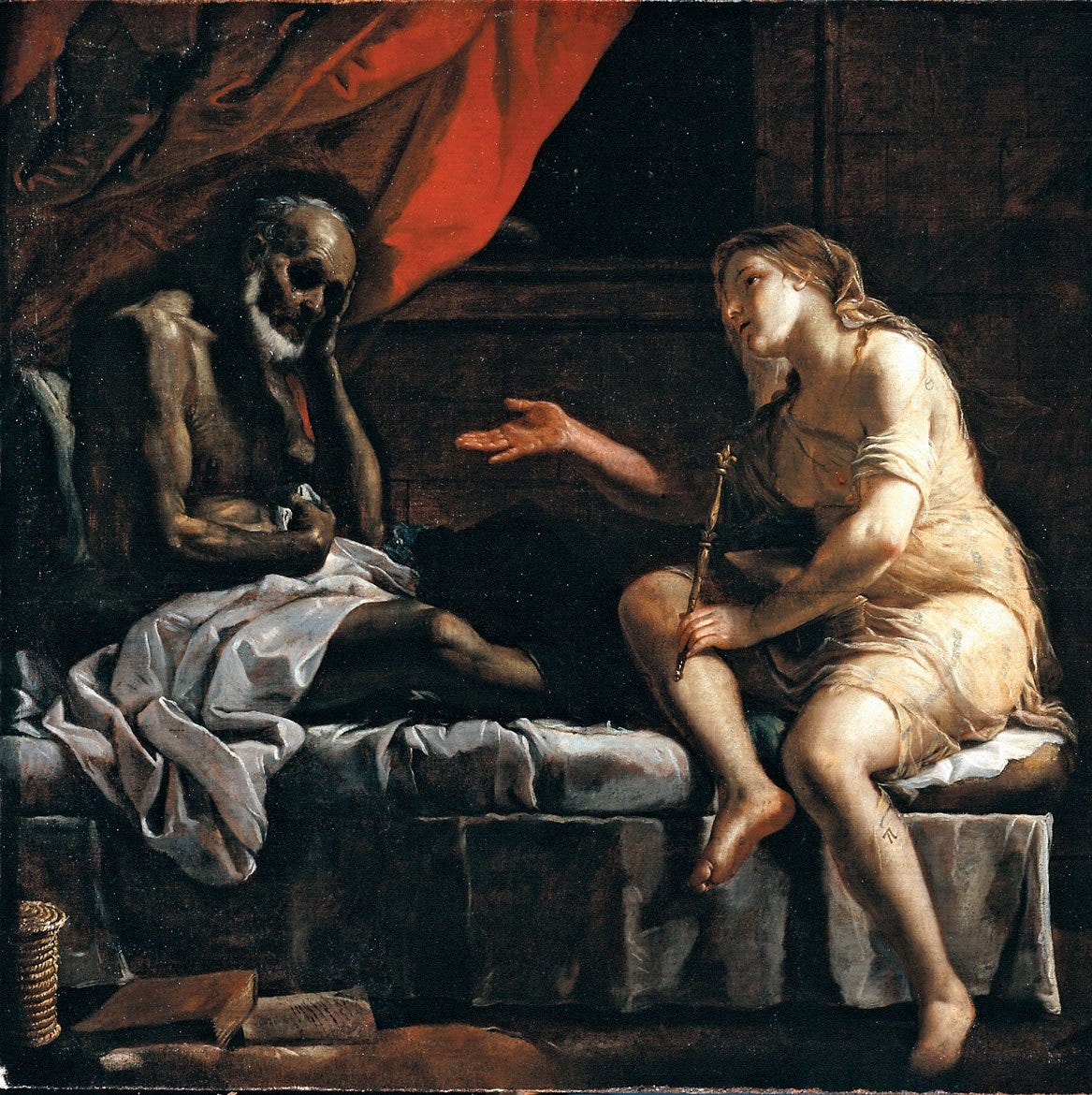Mark Twain once said, “A classic is something that everybody wants to have read and nobody wants to read.”
Glancing through great book lists like the Great Books of the Western World or The Harvard Classics, it’s hard to argue with Twain’s sentiment.
The great books often appear daunting, especially for readers new to the classics — many of the books are long, multi-volume works that hardly seem relevant today. Even experienced readers can be turned off from difficult topics, especially philosophy.
So let’s highlight some easier philosophy works that readers can use to get their feet wet.
Here are five philosophy classics that are not only enjoyable reads, but have shaped the field — from antiquity to modern times…
Reminder: You can support us by unlocking our members-only content:
✔️ Full-length articles every Tuesday and Friday
✔️ The entire archive of content: Western history, literature, and philosophy
✔️ Members-only features like community posts and chat
Join to start reading and support the mission today 👇
1. The Apology & Crito by Plato
The first selection is actually a package deal, since both The Apology and Crito address the trial and subsequent execution of Socrates.
The Apology details Socrates’ defense at his trial shortly before his execution in 399 BC. Socrates defends himself from the charges of “corrupting the youth” and teaching falsehoods about the state gods, His accusers are three prominent Athenians.
“Where can we find wisdom?” and “What is truth?” are some of the deep themes explored.
The work is a prime example of the Socratic dialogue in which Socrates displays a masterful knowledge of interrogation techniques toward one of his accusers, Meletus. Because Socrates himself left no writings, the work is essential in understanding the life and teachings of the “Father of Philosophy”.
Likewise, Crito details the final episode of Socrates’s life, and can be approached as a sequel to The Apology. This brief dialogue is a conversation between Socrates and his friend Crito. Here Socrates recounts his arguments during the trial...
The work explains Socrates’ reasoning for accepting his death sentence rather than fleeing the city, exploring the complex relationship between an individual and the state. Like The Apology, Crito is a must read for anyone wishing to learn more about the great Greek philosophers.
2. Meditations by Marcus Aurelius
Never intended for the public, Meditations is a collection of personal insights and observations from Roman emperor Marcus Aurelius, recorded while on military campaign.
This thought-provoking diary is still read widely after nearly two millennia — a testament to its timeless insights. It’s often considered the epitome of stoic philosophy, although Aurelius draws on multiple schools of philosophical thought.
The work is a unique opportunity to peer into the unfiltered thought of a man remarkably positioned as the leader of the greatest empire in history. Great for daily reading and inspiration, Meditations offers the modern reader a wealth of practical wisdom from someone who reached the pinnacle of success.
3. The Prince by Niccolo Machiavelli
An oft quoted work, The Prince is a 16th century guidebook instructing rulers on effective governance. It’s considered one of the first works of political philosophy and popularized the term “Machiavellian” to describe politically cunning or scheming behavior.
Notably, Machiavelli drew from his experience as a diplomat in Florence as well as his obsessive reading of history. In a letter to fellow Florentine Francesco Vettori, Machiavelli describes how he learns from the lives of the great figures before him by reading:
“…I enter the ancient courts of rulers who have long since died. There, I am warmly welcomed, and I feed on the only food I find nourishing and was born to savour. I am not ashamed to talk to them and ask them to explain their actions and they, out of kindness, answer me.”
It’s a great read for anyone wishing to understand the motivations and reasoning behind great leaders of the past or savvy politicians today. We explore one of Machiavelli’s deepest insights from the work here.
4. The Consolation of Philosophy by Boethius
The Consolation was penned by a persecuted Roman official, Boethius, during a tumultuous time in the empire’s history. Reflecting on the fickleness of fortune, Boethius laments his unjust suffering but is rescued from his despair through conversation with the personification of philosophy, Lady Philosophy.
Through their dialogue Boethius arrives at a surprising conclusion: misfortune can actually be a good thing, and God has ordered the universe so that all — even the wicked who rule with impunity — are given their due.
Boethius serves as a bridge between the Roman mind and the medieval Christian ethos. It’s no surprise his work was one of the most widely read publications of the medieval world.
5. Man’s Search for Meaning by Viktor Frankl
Though perhaps more psychology than philosophy, Man’s Search for Meaning reflects upon man’s resilience in the face of adversity and offers the reader a glimpse of how an individual’s personal philosophy can affect their life outcome.
Analyzing how prisoners (including himself) in Nazi concentration camps dealt with their bleak circumstances, Frankl develops his theory of logotherapy, proposing that man’s primary motivational force is to find meaning in life.
At the time of Frankl’s death at the end of the 20th century, the book boasted sales of 10 million copies and was considered one of the most influential books in the United States. Man’s Search for Meaning pushes the reader to ponder the extremes of life, packing a punch that few other works can deliver.
Time to Wrestle
For those who don’t know where to begin reading the great books, this concise list should serve as a launching point into heavier and more consuming works. Each of the works above is relatively easy, but like all great works, they should be approached with attentiveness, allowing the reader to truly converse with the text.
One should approach any work with patience and a willingness to wrestle with the content. By doing this, the reader’s mind will be strengthened by the experience and will better read, comprehend, and digest future works.
Now, time to get reading.
Thanks for reading. If you enjoyed this content, consider supporting our cultural mission to rebuild serious conversations about what it means to live virtuously, think clearly, and recover the best of the West.
In addition, you’ll unlock our members-only content. Join below 👇












Man's Search for Meaning is a great book! I wish classical style education was being implemented more.
Thanks for the recommendations! Meditations is a great introduction to Stoicism and its benefits and drawbacks as a philosophy. I'm surprised I've never heard of lady philosophy. I will definitely be checking that out.